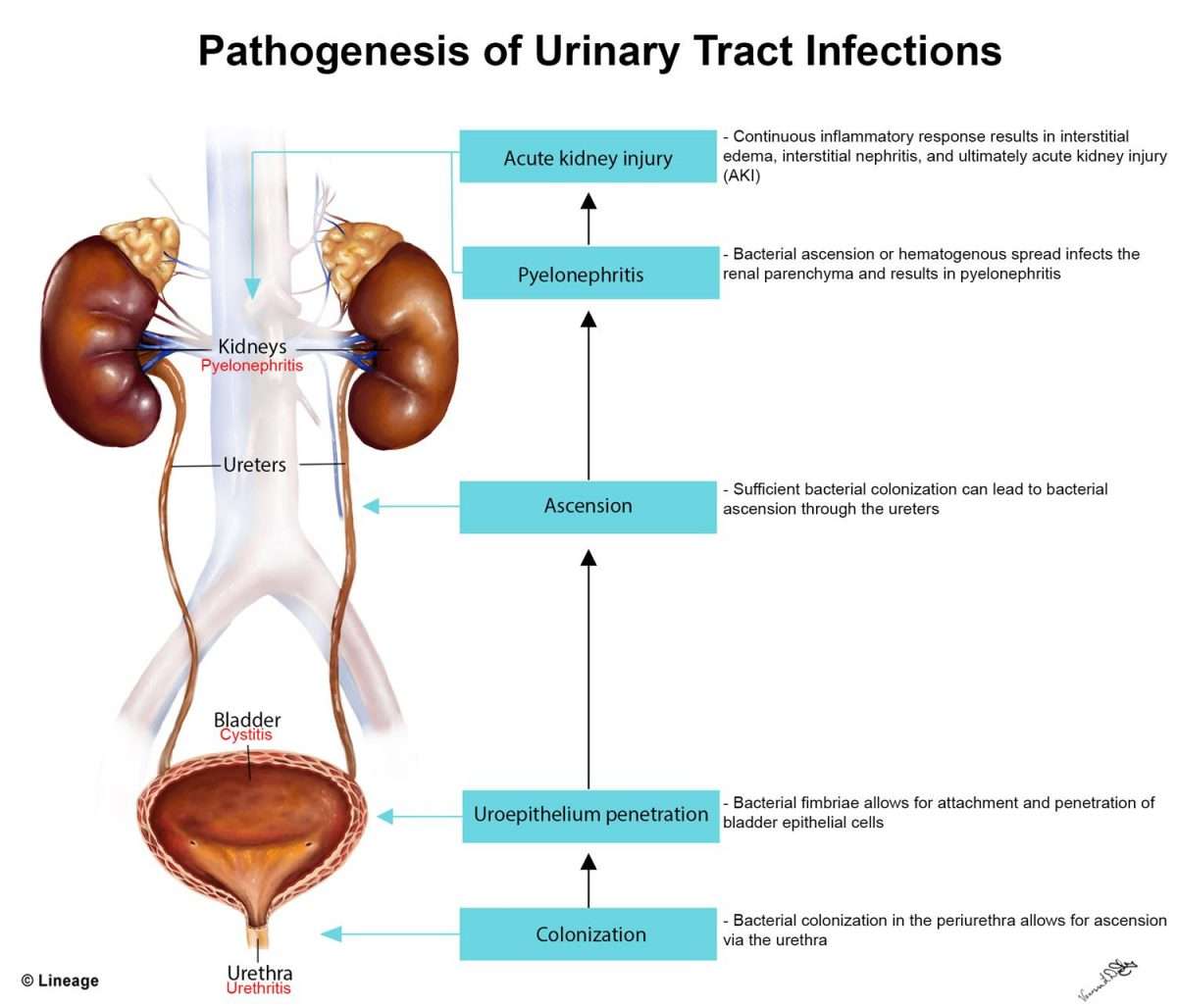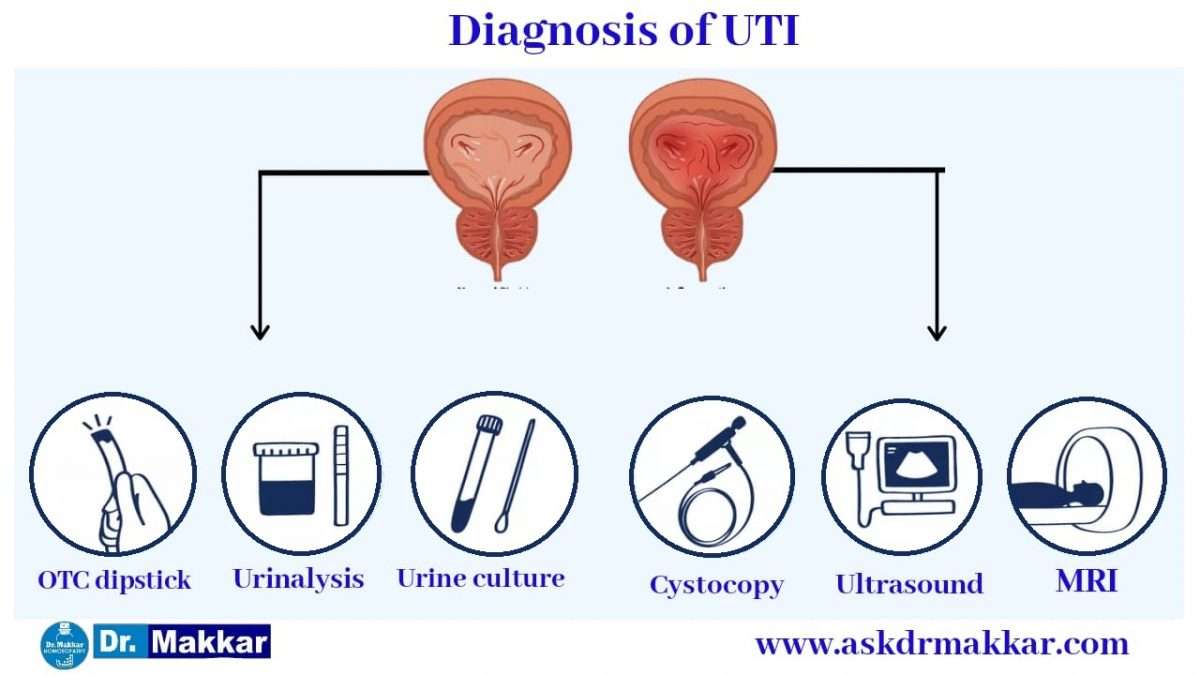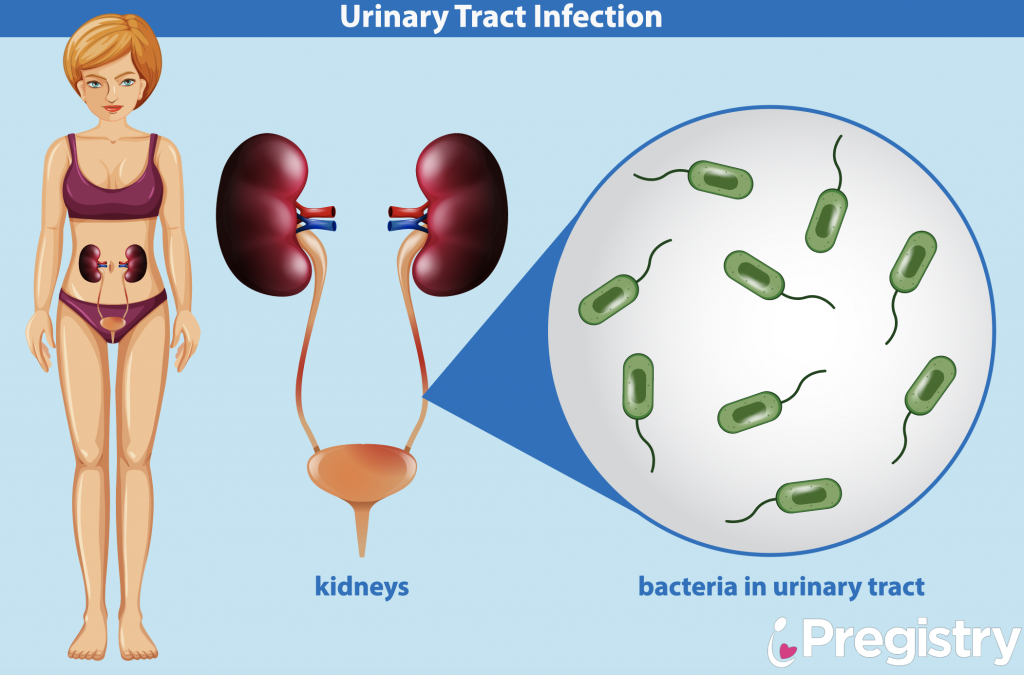What Are The Treatments For A Bladder Infection Vs A Uti
How a doctor deals with a patient’s UTI depends on where it’s located, what caused it, how severe the infection is, and whether there are other complicating factors to consider.
An uncomplicated bladder infection can sometimes clear up on its own. But given that it can turn into a more severe infection, you might be better off with a prescription for some oral antibiotics to kill off the bacteria. Per the American Urological Association , treatment for uncomplicated bladder infections typically involves taking one of the following:
- A single dose of Fosfomycin.
- Nitrofurantoin for five days.
- Trimethoprim-sulfamethoxazole DS for three days.
If you have a more complicated bladder infection, you may need to rely on other types of antibiotics and take them for up to 14 days to clear out the infection. Either way, you should start to feel better within a couple of days of taking the meds but be sure to finish the full course of antibiotics. Otherwise, resistant bacteria could grow and create a new infection that’s harder to cure.
Doctors may also give you additional fluids through the IV. And that’s assuming you don’t get a complication, such as sepsis. Once the IV antibiotics help you feel better, you can generally go home and finish treating the UTI with more antibiotics for a total of 14 days, per the AUA.
There Are Several Different Types Of Utis
Healthline does say that bladder infections are the most common type of urinary tract infection so if you are experiencing burning pain when you urinate and only a few drops come out every time you go, then yes, you very likely have a bladder infection. You may also feel a certain amount of pain in your pelvic or pubic area with this type of infection. If you have urethritis, which is an infection in your urethra , you may feel some itching when you pee.
With a kidney infection, the most serious type of UTI, you may experience the same symptoms you would with a bladder infection. There could also be other signs of trouble like blood in your urine, cloudy or foul-smelling urine, severe back pain, nausea, vomiting, chills, and/or fever. Once these symptoms kick in, get yourself to a doctor, stat! Youve only got two kidneys, and if anything happens to them, you could be at risk of serious complications. In fact, kidney infections left untreated can even prove to be fatal, so they are nothing to mess around with .
Whether you think you have a bladder infection or a different type of UTI, you should speak with your doctor.
Recommended Reading: How Can People Know If They Are Infected With Hiv
Can Urinary Tract Infections Be Prevented
These steps may help reduce the chance of getting UTIs:
- Drink plenty of water every day.
- Drink cranberry juice. Large amounts of vitamin C limit the growth of some bacteria by acidifying the urine. Vitamin C supplements have the same effect.
- Urinate when you feel the need. Do not wait.
- Take showers instead of tub baths.
- Clean the genital area before and after sex, and urinate shortly after sex.
- Women should not use feminine hygiene sprays or scented douches.
- Cotton underwear and loose fitting clothes help keep the area around the urethra dry. Tight clothes and nylon underwear trap moisture. This can help bacteria grow.
- Repeated bouts of urinary tract infections can be treated with small doses of regular antibiotics.
Please consult your health care provider with any questions or concerns you may have about UTIs.
Recommended Reading: Get Yeast Infection Prescription Online
What Can Happen If A Uti Is Not Treated
If treated right away, a UTI is not likely to damage your urinary tract. But if your UTI is not treated, the infection can spread to the kidneys and other parts of your body. The most common symptoms of kidney infection are fever and pain in the back where the kidneys are located. Antibiotics can also treat kidney infections.
Sometimes the infection can get in the bloodstream. This is rare but life-threatening.
Duration Of Urinary Tract Infections

Once treatment has started, symptoms of simple bladder infections usually go away within one to two days, though youll need to continue taking any course of antibiotics as prescribed. If the infection is complicated and has spread to the kidney, it may take a week or longer before symptoms disappear.
Also Check: Can Antibiotics Cure Yeast Infection
Complications Of Kidney Infections
Most kidney infections are treated successfully without complications, although some people may develop further problems.
Complications of a kidney infection are rare, but youre more likely to develop them if you:
- rapid heartbeat
Blood poisoning is a medical emergency that usually requires admission to a hospital intensive care unit while antibiotics are used to fight the infection.
If youre taking certain medications for diabetes, such as metformin or angiotensin-converting enzyme inhibitors, they may be temporarily withdrawn until you recover. This is because they can cause kidney damage during an episode of blood poisoning.
Also Check: Best Home Remedy For Bladder Infection
What About Kidney Stones Are They Involved Here Somehow
Sort of. A kidney stone isnt an infection, but a collection of salt and minerals that hardens and turns into a stone. While some stones may be small others can be much larger. They may stay in the kidney, or begin to move into the ureter, the tube that connects the kidney and the bladder. When this happens, kidney stones can become extremely painful.
Kidney stones can be tricky, since they may have many of the same symptoms as a UTI or a kidney infection pain when urinating, needing to urinate often, and cloudy or strong smelling urine, blood in the urine, fever, nausea or vomiting. And while stones often pass on their own, larger stones sometimes need to be broken up, or removed.
Sometimes, kidney stones can lead to a urinary tract infection or a kidney infection, so its important to get them checked out by your doctor. And, since the symptoms are so similar, getting a checkup is probably a good idea anyway just to rule out the possibility of an infection, and to make sure the stone is moving along as it should.
Also Check: Walgreens Certainty Womens Bladder Control Pads
Also Check: How To Deal With Tooth Infection Pain
Causes Of Bladder Infection
Bladder infections, sometimes called cystitis or urinary tract infections , are when a germusually bacteriatakes up residence in the bladder. Bladder infections are the most common type of UTI, but UTIs can develop in any part of the urinary tract.
The infection causes inflammation and disrupts the normal working of the urinary tract. If left untreated, these infections can also spread to the kidneys, which is more dangerous and painful.
Is A Bladder Infection The Same As A Urinary Tract Infection Uti
A urinary tract infection UTI is an infection in any part of the urinary tract. The urinary tract consists of the kidneys, ureters, bladder, and urethra.
- An infection in the kidneys is called pyelonephritis or kidney infection.
- An infection in the ureters rarely occurs in isolation.
- An infection in the urinary bladder is called cystitis or bladder infection.
- An infection in the urethra is called urethritis.
The terms urinary tract infection UTI and bladder infection are often used interchangeably. However, a bladder infection is a type of urinary tract infection. In other words, a bladder infection is a UTI located in the bladder. A UTI can occur in the bladder or at some other place in the urinary system . All bladder infections are urinary tract infections. But all urinary tract infections are not bladder infections.
If you sense an infection of the urinary system, it is important to get prompt advice, diagnosis, or treatment from a healthcare professional.
Also Check: Apple Cider Vinegar For Sinus Infection
How Are Utis Treated
Treatments for UTIs often depend on the severity of the infection. Doctors often divide UTIs into simple and complicated infections.
Bladder infections usually fall into the simple category. Doctors can usually treat them with antibiotics over the course of three to five days. Common antibiotics used to treat bladder infections include trimethoprim, ciprofloxacin, and amoxicillin-clavulanate potassium.
If you have an infection, you should always take all of your antibiotics, even if you feel better. This keeps the infection from coming back.
Complicated UTIs are harder to treat. Kidney infections usually fall into this category. If you have a complicated UTI, you may require IV antibiotics and have to take antibiotics for a week or more.
What Is A Uti Anyway
A UTI, or urinary tract infection, happens when bacteria enters into any part of your urinary system, which includes the urethra, the bladder, the kidneys or the uterus. If not flushed out of the system, the bacteria can lead to an infection, or a UTI.
If youve ever had a UTI , you probably havent forgotten the symptoms. UTIs are very unpleasant, to say the least, and are often accompanied with one or more of the following:
-
A burning sensation when urinating
-
A strong urge to urinate often, usually passing only small amounts of urine at a time.
-
Cloudy and/or strong smelling urine
Read Also: Can Vitamin B Complex Cause Yeast Infections
How Can You Prevent A Bladder Infection Or Uti
UTIs are incredibly common, but there are steps you can take to help prevent both UTIs and bladder infections specifically.
First and foremost, the NIDDK suggests drinking enough liquids dailythat means about six to eight glasses. Having enough to drink is also a good option for when you’re treating a UTI, too. It helps you pee more, and “every time you pee, you’re clearing out the infection,” says Dr. Eilber.
The NIDDK also says watching your bathroom habits is a good idea. That means making sure to empty your bladder completely each time you pee, wiping front to back , and to try your best to urinate after sex to flush away any bacteria. Wearing loose-fitting clothing can also keep your urethra dry and free from bacteria.
The CDC adds that taking showers instead of baths can help reduce your chance of getting a UTI, as can minimizing unnecessary vaginal cleaning products .
And if you do happen to get a UTI, it’s in your best interest to see a doctor as soon as you feel any possible symptomsthat way, you can treat the condition early and minimize your risk of complications.
To get our top stories delivered to your inbox, sign up for the Healthy Living newsletter
What Are The Causes Of A Uti

A UTI is mainly caused by bacteria, though fungi and viruses can also be the reason. UTIs can be of two typeslower tract infection involving the urethra and bladder, and upper tract infection involving the ureters and the kidneys.
Any factor that can irritate the urinary tract can cause a UTI:
- Long-term catheter use
Also Check: Natural Remedy For Wisdom Tooth Infection
What Is The Urinary Tract
The urinary tract makes and stores urine, one of the bodys liquid waste products. The urinary tract includes the following parts:
- Kidneys: These small organs are located on back of your body, just above the hips. They are the filters of your body removing waste and water from your blood. This waste becomes urine.
- Ureters: The ureters are thin tubes that carry urine from the kidneys to your bladder.
- Bladder: A sac-like container, the bladder stores your urine before it leaves the body.
- Urethra: This tube carries the urine from your bladder to the outside of the body.
Urinary Tract Infection Causes
The urinary tract is made up of the kidneys, ureters, bladder, and urethra. Each of these helps the body get rid of liquid waste. Blood is filtered by the kidneys, which produces urine urine moves through the ureters from the kidneys to the bladder where the urine is stored until it exits the body through the urethra.When bacteria enter the urinary tract, they are usually removed quickly before any damage can be done, but sometimes the bacteria are strong enough to endure the bodys natural defenses and cause an infection.
Also Check: How To Tell Tooth Infection
Treating Utis And Bladder Infections
UTIs and bladder infections are typically treated with antibiotics prescribed by a doctor. In order for the infection to go away completely, you need to take the full course of antibiotics, which lasts 3-7 days in most instances but can last longer.
It takes a bit of time for the inflammation to clear up every once the antibiotic begins working, though most people note significant improvement within 48 hours of being on the right antibiotic.
If antibiotics bother your stomach , consider taking probiotics to repopulate your good gut bacteria. This may also help you stay healthy and boost your bodys infection-fighting potential.
In the meantime, drink plenty of water so the flow of urine can help you flush out your system. You might also want to avoid sexual activity while youre recovering because its probably not going to feel great while your urinary tract is inflamed.
Is Treatment For Cystitis Different From A Uti
Sometimes. The most common cause of cystitis is an infection, so in those cases the treatment is the same as with any UTI. Bacterial infections are treated with antibiotics. If the cystitis is not caused by an infection, your healthcare provider may recommend medications to help reduce the symptoms, like pain relievers, as well as lifestyle changes. Mild cases of cystitis may heal on their own.
You May Like: Do Antibiotics Help Yeast Infections
Diagnosing Cystitis And Urinary Tract Infections
First, your doctor will ask about your symptoms. They may also complete urinalysis to determine your diagnosis. This test will look for:
- PH balance this represents if the urine is acidic or alkaline
- Glucosesugar levels should remain low in urine output
- Nitrites a specific bacteria that causes UTIs
- Protein similar to sugar, proteins are not typically found in urine output
Urinary Infections In Children
A urinary infection in a child needs to be investigated as it may indicate a more serious condition.
The most common urinary system condition is urinary reflux. With this condition, the bladder valve isnt working properly and allows urine to flow back to the kidneys, increasing the risk of a kidney infection.
Urinary reflux and the associated infections can scar or permanently damage the kidney, and can also lead to:
- high blood pressure
- toxaemia in pregnancy
- kidney failure.
Urinary reflux tends to run in families, so its important to screen children as early as possible if a close relative is known to have the problem.
Read Also: Complications Of Surgery In Hiv Infected Patients
Things You Can Do Yourself
To help ease symptoms of a urinary tract infection :
- takeparacetamolup to 4 times a day to reduce pain and a high temperature for people with a UTI, paracetamol is usually recommended over NSAIDs such as ibuprofen or aspirin
- you can give childrenliquid paracetamol
- rest and drink enough fluids so you pass pale urine regularly during the day
- avoid having sex
Some people take cystitis sachets or cranberry drinks and products every day to prevent UTIs from happening, which may help. However, there’s no evidence they help ease symptoms or treat a UTI if the infection has already started.
Urinary Tract Infections In Babies And Young Children

Babies and children are at risk of UTIs. These infections always need to be investigated as they may indicate a serious underlying condition, such as urinary reflux. Reflux is caused by a bladder valve problem allowing urine to flow back into the kidneys from the bladder. Reflux can cause the urine to stay inside the body increasing the risk of infection. It may lead to kidney scarring, which in turn leads to high blood pressure and sometimes kidney problems.
Don’t Miss: What Antibiotics Can Be Used For Tooth Infection
Treatment And Home Remedies
UTIs and yeast infections require different treatments.
UTI treatment usually involves antibiotics, which clear up bacterial infections. The class and dosage of antibiotic treatment depend on the type of infection and the persons medical history.
Although symptoms usually go away shortly after a person starts taking antibiotics, they should complete the entire course of medication that the doctor prescribed.
People can treat yeast infections in several different ways. Mild yeast infections may respond to over-the-counter antifungal medications, which are available in the following forms:
OTC antifungal medications are available to purchase in stores or online.
Severe yeast infections might require a prescription-strength antifungal oral tablet called fluconazole.
Although OTC and prescription medications can successfully treat UTIs and yeast infections, some people may choose alternative or natural therapies instead.
Eating natural, unsweetened yogurt that contains Lactobacillus acidophilus may help prevent yeast infections.
Unsweetened cranberry juice is a common home remedy for UTIs. However, in a 2013 article, researchers reviewed 24 studies and concluded that cranberry juice is less effective than earlier research indicated and that it demonstrates a limited ability to prevent UTIs.
Mild UTIs and yeast infections are easily treatable and may even resolve on their own. However, people should still consult a doctor before attempting to treat either infection at home.
Which Infections Are Worse
NIDDK . A kidney infection is usually caused by a bladder or urethra infection where the bacteria multiply and travel upward toward the kidneys.
Kidney infections can be extremely serious and painful, sometimes leading to hospitalization to receive intravenous antibiotics. If left untreated, kidney infections due to UTIs can cause infections in the bloodstream. This can be life-threatening.
Read Also: Difference Between Uti And Bladder Infection